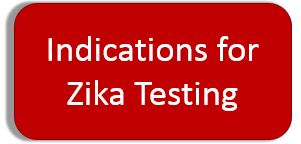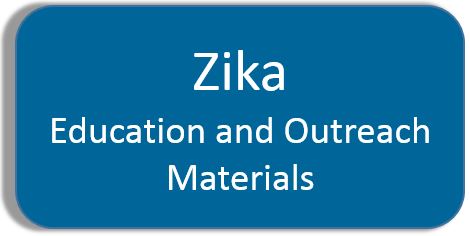(Back to Zika main page)
About Zika Virus Disease
|
Healthcare providers
contact Los Angeles
County Acute
Communicable Disease
Control for questions or
consultation: |
|
213-240-7941 (during
business hours) |
|
213-974-1234 (after
hours or holidays) |
How does Zika spread?
-
Bite of an infected mosquito (most common)
-
From a pregnant woman to her fetus
-
Unprotected sex
-
Blood product transfusion
-
Organ transplantation
What are the symptoms of Zika infection?
Most people infected with Zika will not have symptoms
or will have mild symptoms. Symptoms if present can last
up to a week. The most
common symptoms of Zika are:
-
Fever
-
Rash
-
Headache
-
Joint pain
-
Red eyes
-
Muscle pain
Complications
Complications of Zika
include Guillain-Barré Syndrome in adults and infant
abnormalities if Zika occurs during pregnancy.
Guillain-Barré
is an immune-mediated disorder of the nervous system.
Only a small percentage of people with recent Zika
infection have reportedly developed this disorder. Zika
has also been associated with other neurological
complications including encephalitis, transverse
myelitis and polyneuropathy.
Zika infection during pregnancy can cause severe infant birth
defects including abnormal brain development which can
result in microcephaly or smaller than expected head
size. Zika is also linked to other adverse outcomes such
as miscarriage and stillbirth.
Prevention
Protect Yourself and
Others
There is no vaccine to prevent Zika. During the first week of infection, Zika virus can be found in the blood and passed from an infected person to another mosquito through mosquito bites. An infected mosquito can then spread the virus to other people. The best way to prevent Zika, and other diseases that spread by mosquitoes, is to protect yourself and your family from mosquito bites while you travel.
Also, continue to avoid mosquito bites for at least
three weeks after you return to LA County.
Preventing Mosquito
Bites
-
Use Environmental Protection Agency (EPA)-registered
insect repellents with one of the following active
ingredients: DEET, picaridin, IR3535, oil of lemon eucalyptus or para-menthane-diol,
or 2-undecanone.
-
Do not use insect repellents on children younger than 2 months old.
-
Do not use products containing oil of lemon eucalyptus or para-menthane-diol
on children younger than 3 years old.
-
When outside, especially when you are in areas with
mosquitoes, wear long-sleeved shirts and pants.
-
Stay in places with air conditioning and window and door
screens to keep mosquitoes outside.
Plan for Travel
-
Outbreaks of mosquito borne illness are currently
occurring in many countries and territories. Check
location specific
travel recommendations here before you travel.
-
Include a mosquito protection plan both before and after
your trip.
Protect Yourself During
Sex
Zika can spread through
unprotected sex from a person who is infected to his or
her partner. Men should use condoms or abstain from sex
for 3 months from diagnosis of Zika or travel to an area with
active Zika transmission. Women should take sexual precautions
for 8 weeks after diagnosis or travel.
Diagnosis
Diagnosis of Zika is based on a person’s recent travel history, symptoms, and test results. A blood and/or urine test can confirm a Zika infection.
Treatment
There is no specific medicine for Zika virus.
The only course is to treat the symptoms:
-
Get plenty of rest.
-
Drink fluids to prevent dehydration.
-
Take
medicine such as acetaminophen to reduce fever and pain.
Do not take aspirin or other non-steroidal anti-inflammatory drugs (NSAIDs).
-
If you are taking medication for another health condition, talk to your healthcare provider before taking additional medication.
Testing
See your doctor if you develop
symptoms of Zika and have recently traveled to an area
with recent transmission of Zika or if you had sex
without a condom with a person who lives in or traveled
to an area with recent transmission of Zika. Be sure to tell your doctor where you traveled and when you returned. A blood or urine test can confirm a Zika
infection. Testing is important if you are
pregnant or the partner of a pregnant woman.



